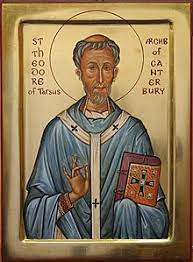35 suggestions for "witchcraft"
Adder stoneRedirected to hagstone.
A Detection of Damnable DriftesSixteenth-century pamphlet describing prominent Chelmsford witchcraft trials against Elizabeth Francis and others
Cunning folkPractitioners of folk medicine, divination and thwarting witchcraft.
ElfshotMedical condition caused by invisible elves or witches shooting invisible arrows at people or animals.
Evil eyeBelief that certain people can inflict disease or death simply by a glance.
Hag stoneRedirected to hagstone.
HagstonePebble pierced by a naturally occurring hole, believed to possess magical properties.
Kiss of ShameRedirected to osculum infame.
MaleficiumAct of sorcery, historically usually performed by a witch, intended to cause harm or injury.
Malkin TowerHome of Elizabeth Southerns, also known as Demdike, and her granddaughter Alizon Device, two of the chief protagonists in the Lancashire witch trials of 1612.
Marion WalkerGlaswegian woman active from 1597–1614 in highlighting the miscarriages of justice perpetrated during a Scottish witch-hunt.
Newes from Scotland1591 pamphlet describing the North Berwick witch trials in Scotland, detailing the confessions given by the accused witches before the King.
Obscene KissRedirected to osculum infame.
Osculum infameRitual of a witch paying homage to the Devil by kissing his genitals, anus or feet.
Scottish Witchcraft Act 1563Redirected to Witchcraft Acts.
Scottish Witchcraft Act 1649Redirected to Witchcraft Acts.
Seely wightsFairy-like creatures at the centre of a shamanistic Scottish cult that existed in the 16th century. Members claimed to be able to enter into a trance which allowed them to fly out at night on swallows, and join with the seely wights.
Summis desiderantes affectibusPapal bull regarding witchcraft issued by Pope Innocent VIII on 5 December 1484.
The examination and confession of certaine Wytches at ChensfordeFirst pamphlet describing witchcraft trials in England; it covers the testimony of witches at Chelmsford Assizes in 1566.
The Love PotionOil painting by the English artist Evelyn de Morgan, created in 1903.
Walter Bruce, ministerScottish minister at Inverkeithing and Rosyth who played a significant role in the witch-hunt of 1649–1650.
Whole trial and examination of Mrs. Mary Hicks and her daughter ElizabethPamphlet purporting to tell the story of Mary Hicks, executed for witchcraft in 1716.
Witch’s broomstickBroomsticks smeared with flying ointment were supposed to give witches the power of flight.
Witch’s familiarDemonic spirit who attends upon a witch, possessing magical powers that can be used for good or evil. Often taking the form of a small animal such as a cat.
Witch-FindingMethods used to identify witches.
Witch ballGlass ball coated with a reflecting material, used to ward off the evil eye of a passing witch.
Witch bottleBottles or jars used in counterspells to reverse a curse imposed by a witch.
Witchcraft Act 1542Redirected to Witchcraft Acts.
Witchcraft Act 1563Redirected to Witchcraft Acts.
Witchcraft Act 1604Redirected to Witchcraft Acts.
Witchcraft Act 1735Sometimes dated 1736, an Act of Parliament that repealed the statutes concerning witchcraft throughout Great Britain, including Scotland.
Witchcraft ActsSeries of Acts passed by the Parliaments of England and Scotland making witchcraft a secular offence punishable by death.
Witchcraft in OrkneyWitchcraft in Orkney possibly has its roots in the settlement of Norsemen on the archipelago from the eighth century onwards. Until the early modern period magical powers were accepted as part of the general lifestyle, but witch-hunts began on the mainland of Scotland in about 1550.
Witches at their IncantationsPainting by the Italian Baroque artist Salvator Rosa, completed in about 1646.
Witch stoneRedirected to hagstone.

